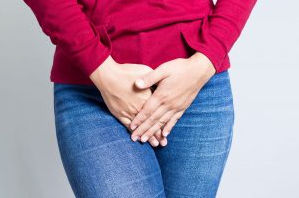 A burning sensation in and around the vaginal, vulva area is a relatively common complaint that many women experience and something that is seen by healthcare practitioners very often.
A burning sensation in and around the vaginal, vulva area is a relatively common complaint that many women experience and something that is seen by healthcare practitioners very often.
There are so many different causes of vaginal and vulva burning, including irritants, sexually transmitted diseases, atrophic vaginitis, thrush, lichen sclerosis, climates changes and is very common in peri-menopause and the menopause period. Each of the causes has its own set of symptoms and the treatments can all vary, depending what the cause it.
In this article we will look at the common causes of having a burning sensation in the vagina and around the vulva area. We will also look at treatments and management of these as well.
Before we start, it is important that women know that often people use the wrong term for the vagina and the surrounding area and often refer to a woman’s genitals as just being the vagina. It is important that we use the correct terms for a woman’s anatomy so that we can correctly identify were problems are.
The vagina is more the internal part of the female genitals and the vulva is the external part. Th Vulva is an umbrella term for the various parts of the external female genitals. These parts include:
- Mons pubis – the fatty ‘pad’ that’s covered in pubic hair
- Labia majora – outer lips
- Labia minora – inner lips
- Clitoris – small organ that’s packed with nerve endings
- Urethral opening – which allows the passage of urine
- Vestibule – area around the opening of the vagina
- Perineum – area between the vagina and anus
Now that we understand the proper terms for the anatomy, lets have a look at what some of the common causes of burning sensation are.
Common causes of vaginal and vulva burning sensation
1.Skin Irritation
There are many things that can irritate the skin of the vulva and vagina when they come into direct contact with it. This is known as contact dermatitis.
Irritants that can cause contact dermatitis, inflammation and burning symptoms include non pH neutral soaps, certain fabrics, perfumes, vaginal hygiene sprays, some lubricants and allergens. As well as burning sensations, women may experience the following:
- severe itching
- redness and rawness and sometimes bleeding
- stinging feelings and sensations of heat
- pain and sometimes
The main way to treat irritation is to avoid whatever has caused the irritation in the first place. Avoiding the irritant and allowing the inflamed area and the skin to heal is one of the best things to do. Sometimes, a woman may require medications to settle the inflammation, or dermatitis down.
2. Candidiasis (Thrush, Yeast infections)
An overgrowth of bad bacteria in the vagina can lead to a burning, stinging sensation and one of the common causes of issues for women. Candidiasis, or thrush is very common in women and is causes through changes in the gut and vaginal flora and this then leads to overgrowth of bacteria, which causes many of the following symptoms
- itching
- soreness
- pain during sex
- pain or discomfort when urinating
- discharge from the vagina (either white, or coloured)
Women are more likely to be prone to getting thrush if they are taking antibiotics, using certain form of hormones and contraceptives, have a weakened immune system, live in humid climates, have diabetes, are pregnant, or not cleaning themselves properly. High stress can also lead to changes in the gut and vagina flora and this can also lead to thrush.
Thrush is usually an antifungal medicine called azoles. Azoles can either be used internally into the vagina, or taken orally as a capsule, or both at the same time. Pre and Probiotics should be taken to help build up the good bacteria and women should take care with personal hygiene. Partners may also need to be treated to prevent further reintroduction of thrush via sexual intercourse.
3. UTI- Urinary tract infection
When a woman has a urinary tract infection (UTI), she will be likely to feel burning in and around the vagina when urinating. There may be other presenting symptoms such as:
- needing to urinate more frequently, or have urgency to urinate
- pain with urination
- smelly, or cloudy urine
- blood in urine
- pain in lower stomach and radiating pain into the back and kidney area
- feeling tired or unwell
When a woman has a urinary tract infection antibiotics will be needed and the antibiotics needed will depend on what the cause of the infection is. Usually an infection will clear up in around 5 days after starting a course of antibiotics.Repeat medication may be required if an infection returns.
4. Bacterial Vaginosis (BV)
Bacterial Vaginosis (BV) is the most common vaginal infection in women aged 15 to 44. Bacterial Vaginosis (BV) is a condition that occurs when there is too much of certain kinds of bad bacteria in the vagina, affecting the balance of good bacteria and flora. One of the main symptoms of BV is a burning sensation in the vagina, which can also occur when urinating.
BV does not always cause symptoms but when it does cause symptoms, besides a burning sensation, it can cause the following:
- white or gray vaginal discharge
- pain and irritation
- itching and redness
- strong fish-like odor, especially after sex (one of the key symptoms)
Having BV can increase a woman’s risk of STI’s and it can also increase her risk of miscarriage, once she is pregnant. If you think that you may have the symptoms of BV, you need to have it check by your doctor as soon as possible. BV is usually treated with antibiotics and you can use complementary medicines to assist in the treatment as well. It is a good idea to restore the good bacteria into the gut and vagina as well. This can be done through the use of prebiotic and probiotic bacteria combined.
5. Trichomoniasis
Trichomoniasis is a common STI and is caused by a parasite that is passed from one person to another during sexual intercourse. Many people may not know that have Trichomoniasis, but symptoms can present with a burning sensation and may also present with the following:
- itching, redness, or soreness
- discomfort when urinating
- women can have vaginal discharge that can be clear, white, yellow, or green and with a fishy smell
Trichomoniasis can increase a woman’s risk of miscarriage, so it need to be treated asap. Trichomoniasis is treated by using certain forms of medicines called azoles.
6. Gonorrhea
Gonorrhea is an sexually transmitted infection where bacteria called Neisseria gonorrheae infect mucous membranes, such as the cervix, uterus, and fallopian tubes. If a woman is infected with gonorrhoea she can experience vaginal burning when urinating, as well as the following symptoms:
- pain when urinating
- vaginal discharge
- vaginal bleeding between periods
Gonorrhea can be cured with the right medical treatment and it needs to be treated with specific medications. Often dual forms of medication are used for effective treatment.
7. Chlamydia
Chlamydia is a common STI caused by the bacteria Chlamydia trachomatis and is transmitted through sexual intercourse with someone who has the infection.
If a woman comes in contact with chlamydia through intercourse, many times she may be asymptomatic (meaning no symptoms) and this is why it is often known as a silent infection. When symptoms do occur it can cause a burning sensation in the vagina and surrounding area. There can be other symptoms which include:
- increased vaginal discharge
- pain with urination and pain during sex
- bleeding during sex and between periods
Chlamydia can cause damage to a woman’s reproductive organs and can affect her fertility, so it is important to have this treated as soon as possible. Chlamydia is treated using specific high dose antibiotics. Treatment may also require IV antibiotics and for someone to be admitted to hospital while these are being administered.
8. Genital herpes
Genital herpes is a common sexually transmitted disease caused by skin-to-skin contact with a person with the herpes virus. Once a person has the virus, it stays with them for life. Sometimes the virus can remain dormant and then at certain stages of life (during stress, illness etc), it can become active and start producing symptoms.
If the virus becomes active, they might experience a burning sensation in the vagina, along with some of the following symptoms:
- an itching or tingling sensation
- flu-like symptoms
- swollen glands
- pain in the vaginal area, particularly when urinating
- change in vaginal discharge
Painful sores, blisters, or ulcers may also develop after a few days. The symptoms of genital herpes can be treated with antiviral medication but once you have herpes, it cannot be cured. You just need to manage it and its symptoms.
9. Lichen sclerosus
Lichen sclerosus is a skin condition that affects the vulva area in women. Lichen sclerosus can cause burning sensation around the vulva area. It can also cause the following symptoms:
- itching and tenderness.
- Pain
- Scarring
- Wrinkling and white patches
Postmenopausal women are most susceptible to have lichen sclerosus. The cause is thought to be an autoimmune response of some kind, since the condition is associated with autoimmune disorders such as Graves’ disease and vitiligo. Treatment includes topical steroid creams, other medications, silica cream, zinc cream and regular medical monitoring. Lichen sclerosus is linked to an increased risk of vulvar cancer.
10. Menopause
Vaginal and vulva burning can be as a result of the perimenopause, or menopause stages of life. The shifting levels of hormones in a woman’s body before she enters menopause can affect the vagina and surrounding area. Burning sensations, in the vagina and around the vulva area is one possible result of these changes, especially during sex.
Some of the common symptoms of the perimenopause/menopause period are:
- hot flushes & night sweats
- difficulty sleeping
- reduced sex drive
- vaginal dryness
- headaches
- mood changes
- Pain with sex
- Atrophic vaginitis.
Not all women entering menopause have treatment to relieve symptoms, but there are often options available that a doctor, or healthcare practitioner, can outline, including hormone therapy. There are also many natural therapies that can help during peri-menopause and menopause stages of life.
What you can do to help yourself
Many causes of vaginal burning require medical treatment. If you are concerned, the best you can do is to see your healthcare practitioner. There are things you can do before seeing your doctor. Sometimes a ice pack or cold compress to the affected area can help reduce the burning sensation. You can also try some over the counter soothing creams, or antifungals.
Make sure you are practicing proper hygiene and cleaning the outer area of the vulva properly. Women should avoid using douches, which can affect the good bacteria and internal flora of the vagina. Wearing cotton underwear and avoiding tight-fitting clothes can help reduce irritation in the vaginal area. It is also important to avoid products that could irritate the area further, such as perfumed soap, scented toilet paper, and sanitary products with deodorant, or a plastic coating.
Possible complications
Some causes of vaginal burning, such as urinary tract infections, BV, STI’s, lichen sclerosis can have some serious complications if left untreated. Cancer also needs to be ruled out so this is why it is important to have any symptoms of burning checked out by your doctor.
STI’s can affect future fertility and are also harmful to women who are pregnant, as they can affect their baby, or pregnancy. Many STI’s can cause preterm delivery and also increase the risk of miscarriage.
While some causes of vaginal and vulva burning may go away on their own over time, it is still important to go and get your doctor’s advice just to be safe. If your symptoms aren’t going away, are becoming worse, or are of a concern, then the woman should go and see a doctor as soon as possible. The longer you leave something, the worse it can get and the more issues it can cause, if left untreated. Many of the cases of burning sensation in the vagina and around the vulva will be relieved once the underlying cause is treated properly and with the appropriate medicines.
While medical options will be needed for some conditions, there are complementary medicines and complementary medicine modalities that may be able to assist your particular issue, or alongside medical treatments. Please always see a qualified healthcare practitioner and not use Dr Google, or take advice from friends or family for any medical advice.
Take care
Regards
Andrew Orr
-No Stone Left Unturned
-Women’s and Men’s Health Advocate
-The Women’s Health Experts













